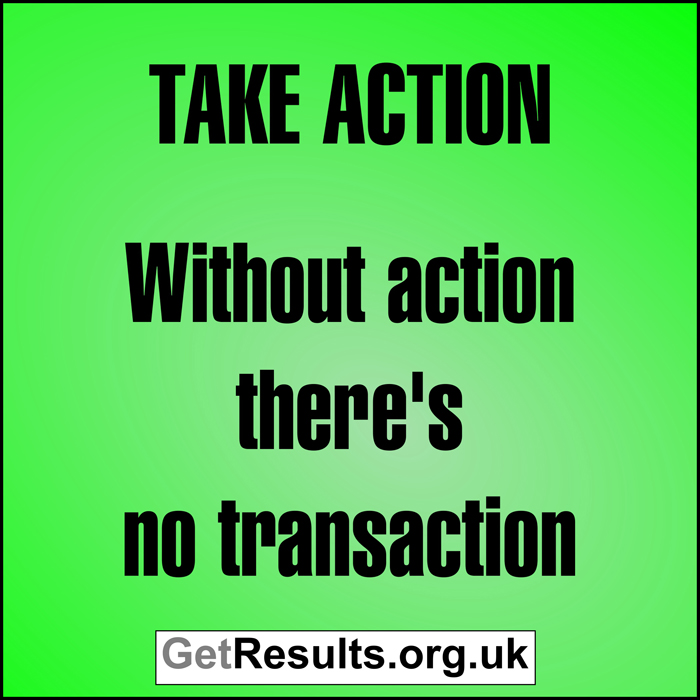
Imagine suddenly coming to the realisation that you play every role of every actor that has ever lived and is living. How would that change the way you perceive and treat other people? The Egg by Andy Weir, puts you in that very situation allowing a shift in perspective, to a more compassionate and empathetic point of view when dealing with others.
The Egg
You have died.
You were on your way home when you died.
It was a car accident, nothing particularly remarkable, but fatal nonetheless. You left behind a wife and two
children. It was a painless death. The EMTs tried their best to save you but to no avail. Your body was so
utterly shattered you were better off, trust me.
And that’s when you met me.
“What.. What happened?” You asked. “Where am I?”
“You died” I said, matter-of-factly. No point in mincing words.
“There was a.. a truck and it was skidding…”
“Yup.” I said.
“I.. I died?”
“Yup, but don’t feel bad about it. Everyone dies.” I said.
You looked around. There was nothingness. Just you and me. “What is this place?” You asked. “Is this the
afterlife?”
“More or less.” I said.
“Are you God?” You asked.
“Yup.” I replied. “I am God.”
“My kids.. my wife,” You said.
“What about them?”
“Will they be alright?”
“That’s what I like to see,” I said. “..you just died and your main concern is your family. That’s good stuff
right there.”
You looked at me with fascination.
To you I didn’t look like God. I just looked like some man or possibly a woman. Some vague authority figure,
maybe. More of a grammar school teacher than the almighty.
“Don’t worry.” I said. “They’ll be fine. Your kids will remember you as perfect in every way. They didn’t
have time to grow contempt for you. Your wife will cry on the outside, but be secretly relieved. To be fair,
your marriage was falling apart. If it’s any consolation, she’ll feel very guilty for feeling relieved.”
“Oh,” You said. “.. so what happens now? Do I go to heaven or hell or something?”
“Neither.” I said. “You’ll be reincarnated.”
“Ah,” You said. “.. So the Hindus were right.”
“All religions are right in their own way,” I said. “.. walk with me.”
You followed along as we strode through the void.
“Where are we going?”
“Nowhere in particular,” I said. “.. It’s just nice to walk while we talk.”
“So what’s the point, then?” You asked. “When I get reborn, I’ll just be a blank slate, right? A baby. So all my
experiences and everything I did in this life won’t matter.”
“Not so!” I said. “You have within you all the knowledge and experiences of all past lives. You just don’t
remember them right now.”
I stopped walking and took you by the shoulders.
“Your soul is more magnificent, beautiful, and gigantic than you can possibly imagine. A human mind can only
contain a tiny fraction of what you are. It’s like sticking your finger in a glass of water to see if it’s hot or
cold. You put a tiny part of yourself into the vessel, and when you bring it back out, you’ve gained all the
experiences it had.”
“You’ve been in a human for the last 48 years, so you haven’t stretched out yet and felt the rest of your
immense consciousness. If we hung out here for a long enough, you’d start remembering everything. But
there’s no point to doing that between each life.”
“How many times have I been reincarnated, then?”
“Oh lots. Lots and lots. An in to lots of different lives.” I said. “This time around, you’ll be a Chinese peasant
girl in 540 AD.”
“Wait, what?” You stammered. “You’re sending me back in time?”
“Well, I guess technically. Time, as you know it, only exists in your Universe. Things are different where I
come from.”
“Where you come from?” You said.
“Oh sure,” I explained. “.. I come from somewhere. Somewhere else. And there are others like me. I know
you’ll want to know what it’s like there, but honestly you wouldn’t understand.”
“Oh,” you said, a little let down. “.. but wait. If I get reincarnated to other places in time, I could have
interacted with myself at some point.”
“Sure. Happens all the time. And with both lives only aware of their own lifespan you don’t even know it’s
happening.”
“So what’s the point of it all?”
“Seriously?” I asked. “Seriously? You are asking me for the meaning of life? Isn’t that a little stereotypical?”
“Well it’s a reasonable question,” You persisted.
I looked you in the eye.
“The meaning of life, the reason I made this Whole Universe, is for YOU to mature.”
“You mean mankind? You want us to mature?”
“No, just YOU. I made this Whole Universe for YOU. With each new life YOU grow and mature and become a
larger and greater intellect.”
“Just me? What about everyone else?”
“There is no one else,” I said. “.. in This Universe, there’s just YOU and ME.”
You stared blankly at me. “But all the people on Earth…”
“All you. Different incarnations of YOU.”
“Wait. I’m everyone!?”
“Now you’re getting it,” I said, with a congratulatory slap on the back.
“I’m every human being who ever lived?”
“Or who will ever live, yes.”
“I’m Abraham Lincoln?”
“I’m Hitler?” You said, appalled.
“And you are the millions he killed.”
“I’m Jesus?”
“And you’re everyone who followed him.”
You fell silent.
“Every time you victimized someone,” I said, “.. You were victimizing yourself. Every act of kindness you’ve
done, you’ve done to yourself. Every happy and sad moment ever experienced by any human was, or will be,
experienced by YOU.”
You thought for a long time.
“Why?” You asked me. “Why do all this?”
“Because someday, YOU will become like me. Because that’s what you are. You’re one of my kind. You’re my
child.”
“Whoa,” you said, incredulous. “You mean I’m a god?”
“No. Not yet. You’re a fetus. You’re still growing. Once you’ve lived every human life throughout all time, you
will have grown enough to be born.”
“So the Whole Universe,” You said, “.. it’s just…”
“An egg.” I answered. “Now it’s time for you to move on to your next life.”
And I sent you on your way.
By: Andy Weir
A great story, I’m sure you’ll agree.
I find it helps me look at other people in a completely different light, and allows me to examine my own attitude and approach to others. If we can be more compassionate and empathetic towards other people, we can connect in a more meaningful way.
Judging and labelling others, and we all do it to some degree, stops any meaningful connection by putting up prejudiced barriers. As a result we act differently in different social situations, we become actors, role playing. Thus connections are rarely deeper than the surface level of those roles.
We mistakenly believe the roles played by others, are a true representation of them, when in reality people are much more complex.
People’s attitudes and behaviours are much more influenced by their environment and situations, than we give credit for. We should be less judgemental, because we know very little about the person underneath the roles they play. Only by walking in their shoes, can you get close to possibly knowing how they feel and why they behave as they do.
Hope you enjoyed this post.
For more about changing perspective, check out this post.



































